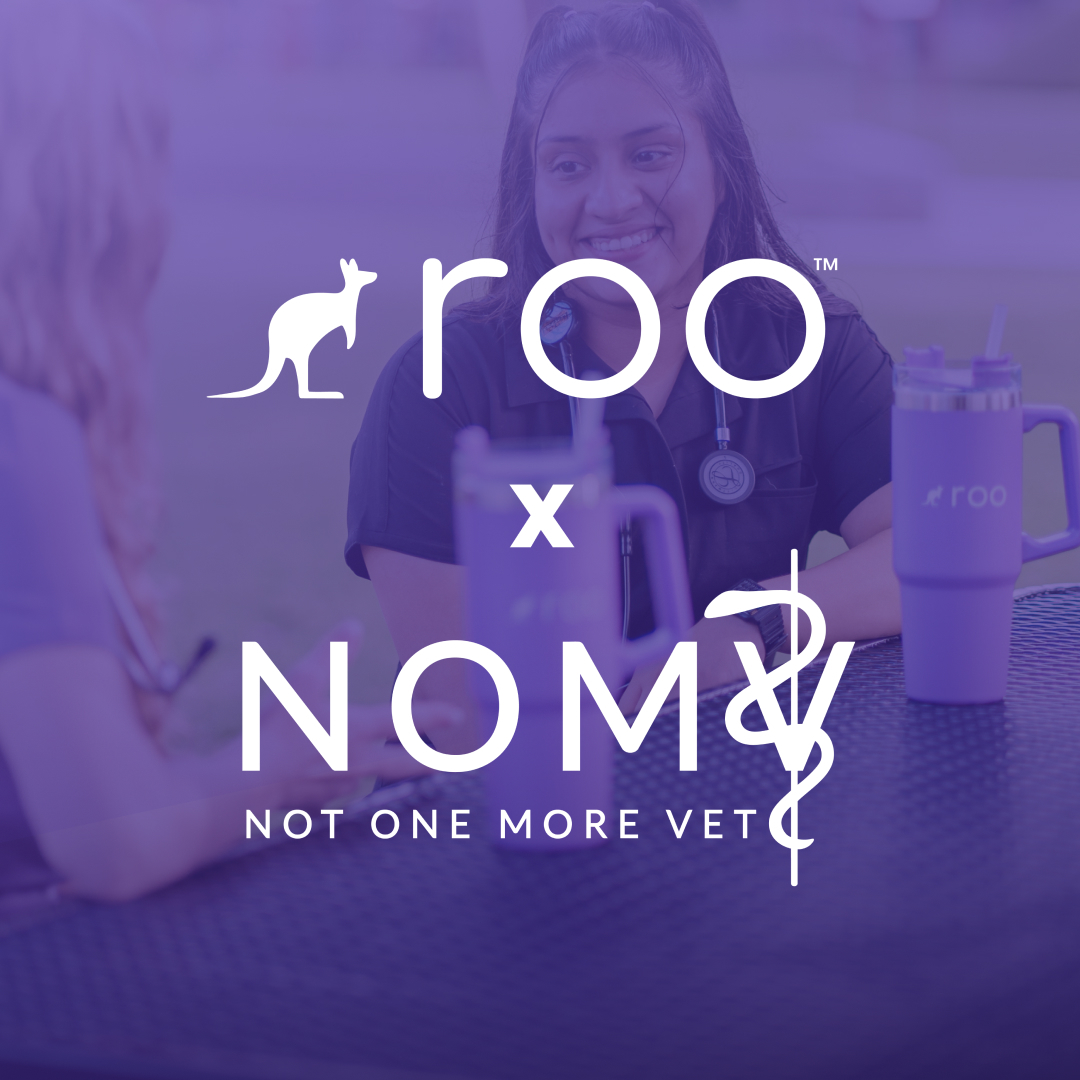The Veterinary world is spinning faster than ever. One minute you’re deep in surgery, the next you’re comforting a worried pet parent, and somewhere in between, you’re trying to figure out where the industry is headed. With staffing shortages and burnout being hot topics, it’s easy to feel a little overwhelmed. But what if we told you the future of Veterinary staffing is looking brighter and more exciting than ever before?
Change can be a good thing, especially when it means better support, smarter tools, and more opportunities for you. The challenges of today are paving the way for some incredible innovations. We’re seeing a major shift in how clinics operate, how teams are built, and what it means to be a Veterinary professional. This article is your friendly guide to the biggest staffing trends and Veterinary workforce predictions for 2025, so you can feel prepared and optimistic about what’s next.
The big picture: Key shifts in the Veterinary workforce
Let's be real, the Veterinary workforce of today looks and feels different than it did even five years ago. And that’s a fantastic thing. We’re moving away from old-school, one-size-fits-all approaches and embracing a more dynamic and inclusive environment. One of the biggest Veterinary workforce predictions is the continued rise of a more diverse, tech-savvy generation of professionals who are championing self-care and wellbeing.
This shift isn't just about who is entering the field; it’s about what they expect from it. There’s a growing demand for workplaces that prioritize mental health, offer flexible schedules, and create a culture where everyone feels heard and valued. This is pushing the entire industry to evolve, leading to more supportive and sustainable careers for everyone.
Technology is officially part of the team
For a long time, tech in a Vet clinic meant the x-ray machine in the back and the computer at the front desk. Not anymore. Technology is now a core member of the team, and it’s completely changing our approach to staffing.
AI is your new super-smart assistant
The term “Artificial Intelligence” might sound a bit like a sci-fi movie, but in reality, it’s becoming an incredibly practical tool in Veterinary medicine. Think of AI as the ultimate assistant who can handle the tedious stuff so you can focus on the animals. For hospital managers, AI is streamlining the hiring process by quickly sorting through applications to find the perfect candidates.
Once a new team member is on board, AI can help create personalized training programs, getting them up to speed faster and more effectively. It can even analyze workflows to spot inefficiencies and help with performance tracking, making career development more objective and tailored to individual goals.
Telemedicine is here to stay
The ability to provide care from anywhere has been a game-changer. Telemedicine isn’t just a convenience for pet owners; it’s a major staffing trend that’s opening up new career paths and offering unprecedented flexibility. For Veterinary professionals, this means opportunities to work from home, create a better work-life balance, and reduce the stress of a packed, in-person schedule. This flexibility is a huge draw, and clinics that embrace telehealth will have a major advantage in attracting top talent.
Smarter practice management
Modern practice management systems are doing more than just booking appointments. They are becoming sophisticated hubs that handle everything from medical records to client communication. By automating administrative tasks, these systems free up Veterinarians and Vet Techs to do what they love, caring for patients. This boost in efficiency not only makes the day less stressful but also improves the quality of care, enhances client interactions, and leads to a more engaged and satisfied team.
It’s all about keeping great people
Hiring new staff is tough, which is why the focus is shifting dramatically toward retention. The best clinics are realizing that building a happy, long-term team is the ultimate key to success. The secret sauce? It’s a mix of fair pay, a great team environment, modern medical tools, and genuine appreciation.
More than just a paycheck
While competitive pay is essential, today's Veterinary professionals are looking for more. They want benefits that support their whole life, not just their work life. This includes robust mental health resources, support for continuing education, and benefits that acknowledge their unique passion, like a healthcare stipend that covers their own pets’ medical needs. Creating a financial foundation with a true living wage, and understanding the landscape of the highest-paid veterinarian jobs, is crucial for making Veterinary medicine a sustainable, long-term career. Tools like a veterinarian salary calculator and resources for taxes and finance can also provide significant support.
Creating a culture of belonging
A workplace that values diversity and inclusivity isn't just doing the right thing, it's building a stronger, more innovative team. When people from different backgrounds come together, they bring fresh perspectives that can solve old problems in new ways. More importantly, when every team member feels included, respected, and heard, they are more engaged, more committed, and far more likely to stay for the long haul.
Flexible is the new full-time
The traditional 9-to-5 (or, let’s be honest, 8-to-8) doesn’t work for everyone. The rise of Relief work is one of the most significant staffing trends because it puts power back in the hands of Veterinary professionals. Platforms like Roo give Vets and Vet Techs the freedom to choose when and where they work, allowing them to build a schedule that fits their life, with tips and guides to help them succeed. This flexibility, detailed in resources like a work-life balance guide, helps prevent burnout and keeps talented people in the profession. Knowing how much relief vets can make provides a clear financial incentive. For hospitals, leveraging Relief staff is a smart way to stay fully operational, prevent team burnout, and even boost revenue. This can also be a pathway to permanent positions through relief-to-hire programs and full-time placement services.
The skills you’ll need to shine
As the Veterinary field evolves, so do the skills required to succeed. Staying ahead of the curve is all about being adaptable and open to growth.
Getting friendly with tech
Being tech-savvy is no longer a bonus; it’s a necessity. The future Veterinary job market will belong to those who are comfortable with new technologies, from advanced diagnostic tools and AI-powered systems to telehealth platforms. You don’t need to be a computer whiz, but a willingness to learn and adapt, with the help of tutorials, will make you an invaluable part of any team.
Upping your communication game
With the rise of telemedicine and an increasingly diverse client base, clear and empathetic communication is more critical than ever. The ability to explain complex medical information simply, connect with pet owners remotely, and work collaboratively with a diverse team are skills that will set you apart.
Never stop learning
Veterinary medicine is constantly advancing, and a passion for learning is essential. Committing to continuous education not only keeps your skills sharp but also shows a dedication to providing the best possible care. Whether it’s attending a webinar or a workshop, staying curious is key. If you're looking for opportunities, Roo offers Free CE Events and a list of upcoming events to help you grow.
A look at the corporate question
It’s impossible to discuss the future of the profession without talking about the rise of corporate Veterinary groups. It's a topic that brings up a lot of feelings, and it’s important to approach it with a balanced view. While some professionals worry about patient care being sacrificed for profit, it’s also true that larger organizations can sometimes offer competitive benefits and structured career paths. At Roo, we remain neutral, partnering with all types of Hospitals, from small private practices to large corporate groups, to support the health of the entire Veterinary ecosystem with helpful Vet Resources.
The future of Veterinary staffing is not about one single solution but a collection of exciting trends pointing toward a more flexible, supportive, and technologically advanced profession. It’s a future where you have more control over your career and more tools to help you succeed. If you’re ready to see what opportunities are out there, you can explore careers at Roo or sign up to check out Relief shifts in your area.
FAQs: Your top questions answered
1. For more answers to common questions, check out our FAQs.
Answer : What are the staffing trends in Veterinary medicine for 2025?
- Increased adoption of technology like AI and telemedicine to improve efficiency and flexibility.
- A major focus on staff retention through better pay, benefits, and positive work cultures.
- The growing popularity of flexible work arrangements, including Relief work and part-time roles.
- A greater emphasis on diversity and inclusion to build stronger, more innovative teams.
2. How is the Veterinary workforce expected to change?
Answer : The workforce is becoming more diverse and tech-literate, with a stronger desire for work-life balance, mental health support, and careers that offer both professional and personal fulfillment.
3. What skills will be in demand in the future Veterinary job market?
Answer : The skills that will be in demand in the future Veterinary job market
- Technological proficiency: Comfort with AI tools, telemedicine platforms, and modern practice software.
- Strong communication: The ability to connect with diverse clients both in-person and virtually.
- Adaptability: A willingness to embrace new medical procedures, technologies, and ways of working.
- Emotional intelligence: Skills in empathy and self-care to manage the emotional demands of the job.
4. How is technology impacting Veterinary staffing?
Answer : Technology is automating administrative tasks, which frees up staff to focus on patient care, creating new roles in areas like telemedicine, and providing data to help with smarter hiring and retention strategies.
5. What is the most important factor for retaining Veterinary staff?
Answer : While fair pay is crucial, studies show that a positive team culture, feeling appreciated, having opportunities for growth, and maintaining a healthy work-life balance are the biggest drivers of long-term retention.

.png)




.png)
.png)




